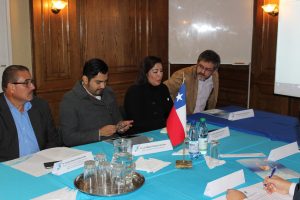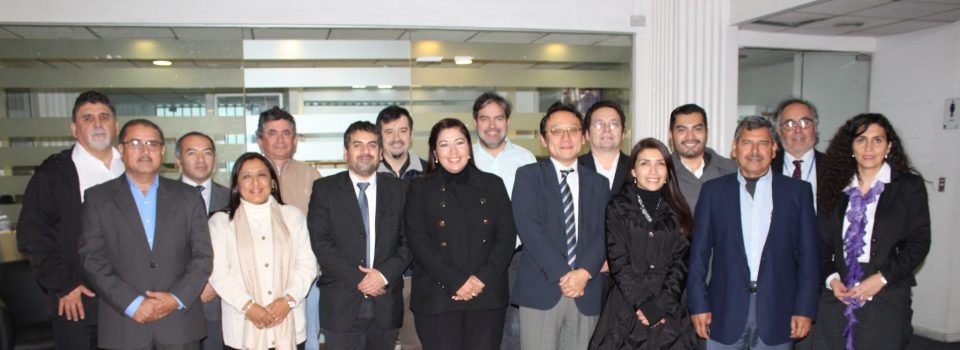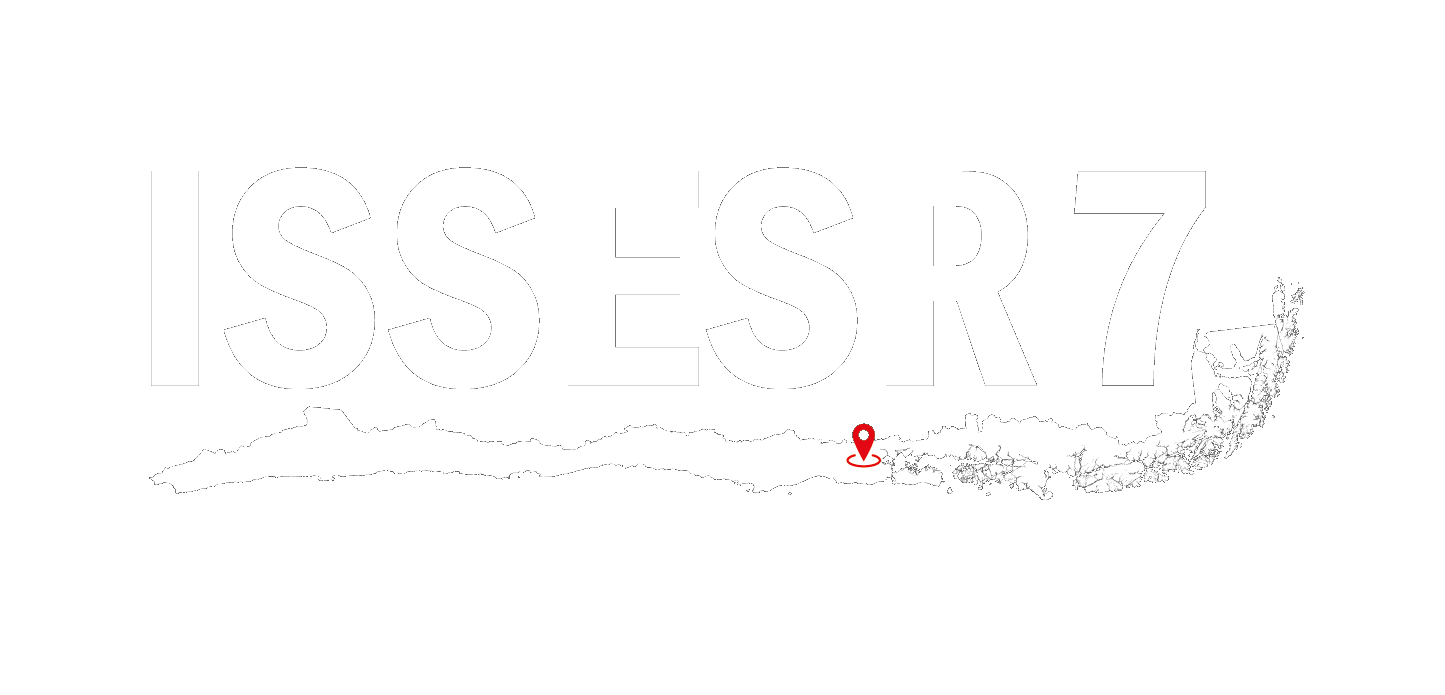Delegation from El Salvador’s Ministry of Economy visits Chile.
July 7th, 2017 During this visit the authorities have internalized about research work carried out by IFOP, Sernapesca and Subpesca; they made a tour of IFOP’s laboratories of age and growth and the plankton laboratory.
During this visit the authorities have internalized about research work carried out by IFOP, Sernapesca and Subpesca; they made a tour of IFOP’s laboratories of age and growth and the plankton laboratory.
On Monday, July 3rd, a delegation from El Salvador Government Ministry of Economy visited the Institute for Fisheries Promotion; The delegation was received by IFOP Executive Director Leonardo Núñez, Head of Division of Administration and Finance Pamela Denmark and an IFOP Professional Team, Sernapesca and Subpesca.
The delegation consisted of Merlín Barrera, Trade and Industry Vice Minister, Ministry of Economy, Teodoro Romero, Productive Development Director, Ministry of Economy, Gustavo Portillo, Director of National Center for Fisheries and Aquaculture Development (CENDEPESCA), Alberto Olivares, CENDEPESCA Research Adviser, Rosibel Flores, Deputy Director of the National Commission for Micro and Small Enterprises (CONAMYPE), Luis Flores, Program Coordinator for Productive Corridors, Luis Vásquez, Program Officer, JICA El Salvador, Kazutoshi Yamaguchi, Senior Representative JICA El Salvador.
Merlín Barrera, Vice Minister of Trade and Industry, Ministry of Economy, El Salvador, explained “the purpose of the visit is to know all the progress that IFOP has made in terms of knowledge that will allow a better fishing process because we are initiating a program aimed at strengthening the artisanal fishing chain in El Salvador that will serve 30 municipalities.
We are thankful for the fisheries authorities in Chile attentions towards us; IFOP, Fisheries Undersecretariat and National Fisheries Service, because they have allowed us to know in an orderly manner exceeding all of our expectations not only in the quantity of information but also in the number of opportunities for possible cooperation links that we can develop in the near future “.
Teodoro Romero, from El Salvador Republic Ministry of Economy explained “We are interested in learning about development of fishing processes and aquaculture promoted by IFOP, especially fishing technology prospecting for places and times of capture planning for Sustainable fishing, and other processes that may be suitable for improving artisanal fishing competitiveness in our country.
We are initiating the implementation of a program called ¨Productive Corridors, which aims to improve productive infrastructure and increase the competitiveness of micro, small and medium-sized enterprises in the artisanal and aquaculture fishing sectors of the coastal zone of our country “
Vilma Ojeda, IFOP researcher who participated in the visit, commented that “The age and growth laboratory is constantly studying the age of hydrobiological resources using one of their lines of work to study hard structures (otoliths, spines, vertebrae and others) To know the age of the specimens sampled. In these hard structures treatments different techniques and equipment are applied which allow to count on samples that after the microscopic analysis reveal the age structure of the studied population, knowledge that forms a relevant part in the evaluation of the stock and that is what we show to the delegation”.
In his speech, Javier Rivera, head of the fishery department of the Undersecretariat of Fisheries and Aquaculture, explained the process of determining fishing quotas in Chile, explaining the differences among the functions of Technical Scientific Committees – organisms that propose the quota range – and Management Committees – in charge of designing Management Plans. In addition, he extensively addressed the different management and conservation measures proposed by this model for each of the areas, allowing progress in the ecosystemic approach.
Jorge Castillo, (S) Head of Direct Evaluations Department added “during the visit we explained that Direct Evaluations of fishery resources in Chile are to provide information” of abundance and spatial distribution of fishery resources through direct methods, expressed in Height, age and sex “; To study the behavior of fish through direct observations and to study the oceanographic conditions that limit the distribution of resources “.
Main characteristics of the Direct Methods and assumptions that underlie its application (during the study period there are no migratory movements or changes in behavior and the entire resource is distributed located in the survey area .
It was pointed out that IFOP’s DED carries out studies in practically the whole country yearly covering from the Region of Arica and Parinacota to Region of Magellan and Chilean Antarctica, studying the resources Anchoveta, horse mackerel, common sardine, common hake, southern hake, hake Tail, three finned hake, yellow shrimp, red shrimp and nylon shrimp, in addition to the cuttlefish and reineta. For this purpose, it uses the scientific ships Abate Molina and Cabo de Hornos as well as industrial and artisanal fishing vessels. The applied methodology to obtain estimates of numerical and weight abundance of the resources studied and the way the results for their application in the stock assessment models and the Scientific Committees are given are summarily explained.

 7th International Symposium on Stock Enhancement and Sea Ranching
7th International Symposium on Stock Enhancement and Sea Ranching